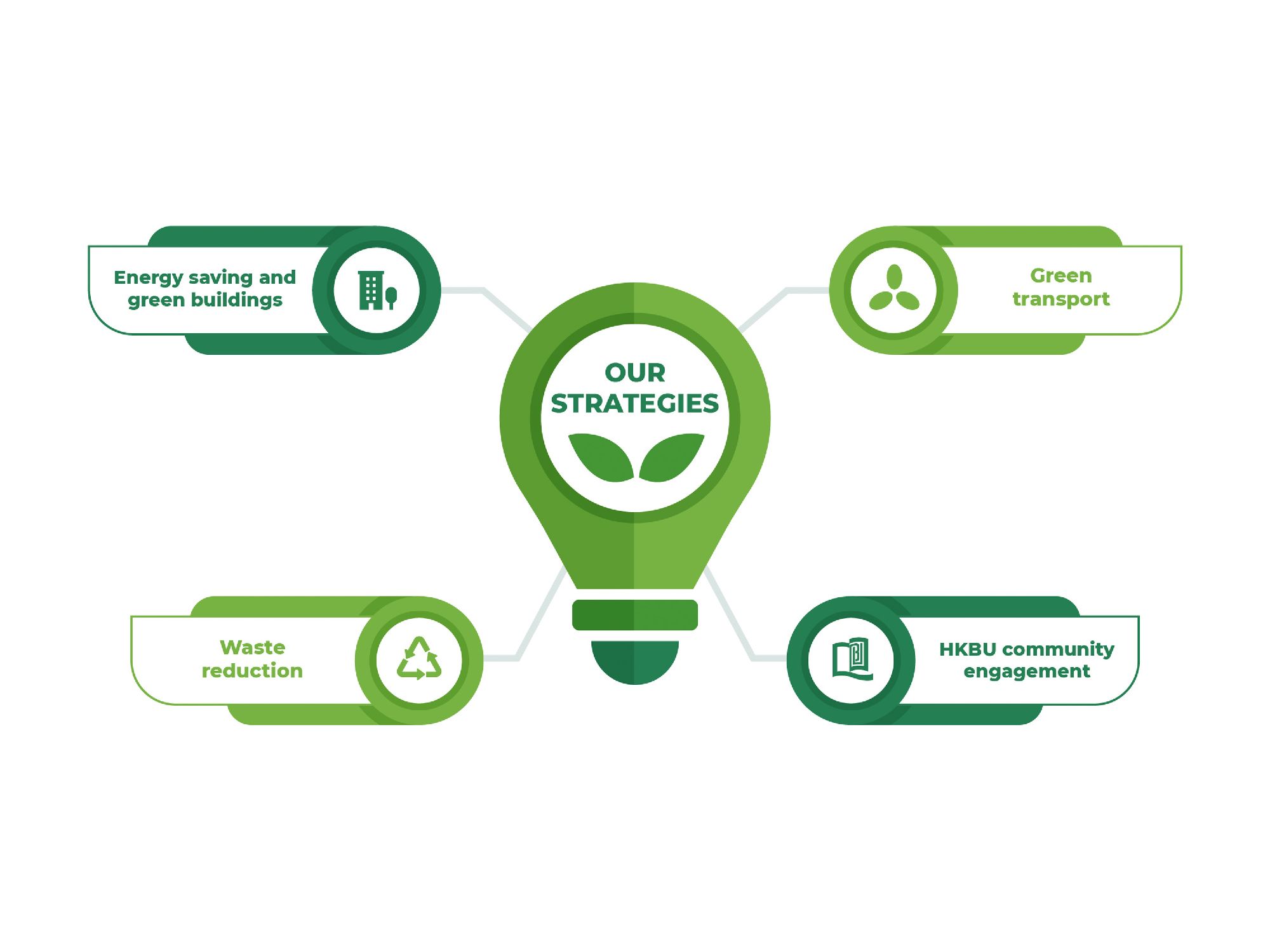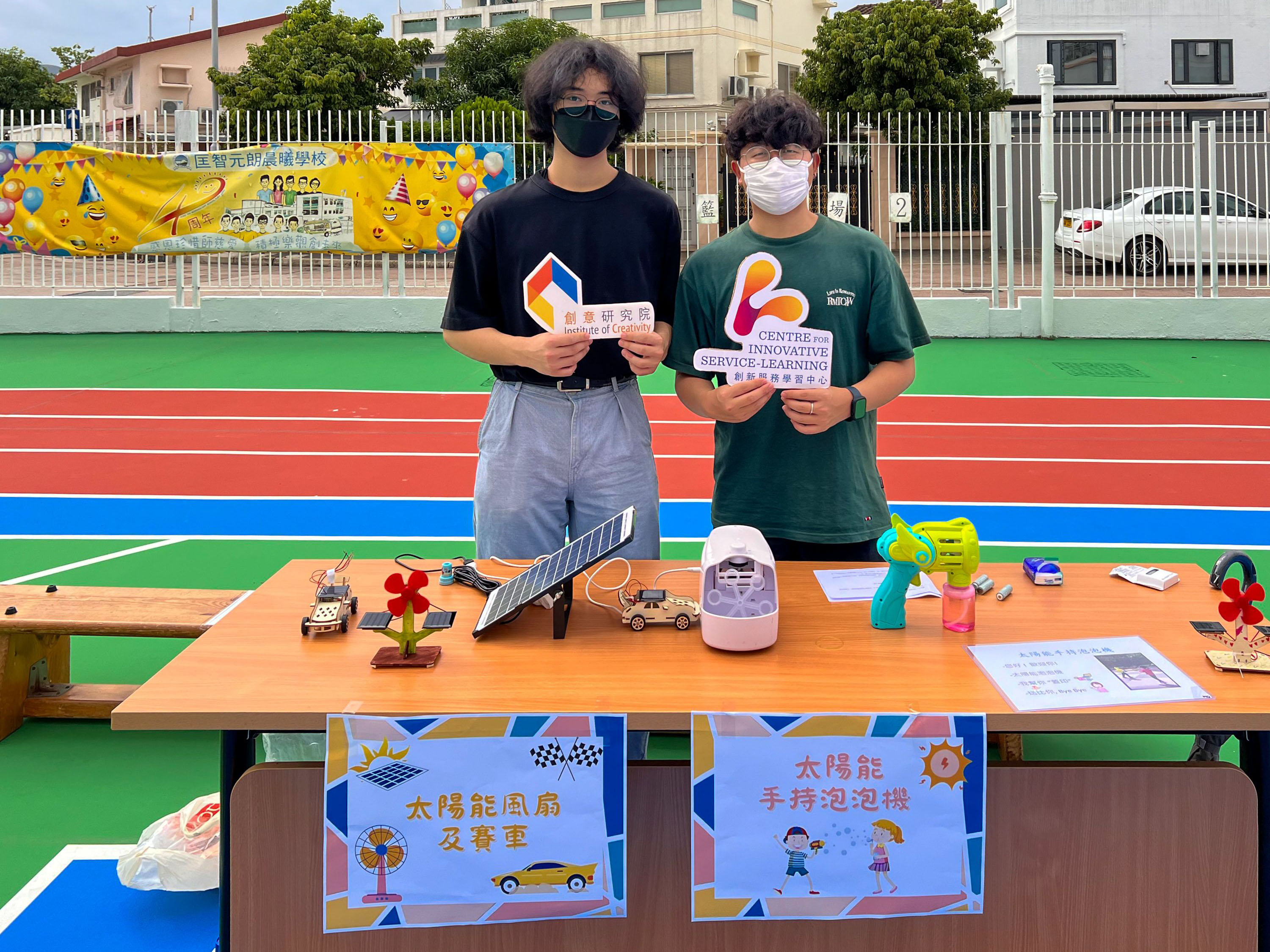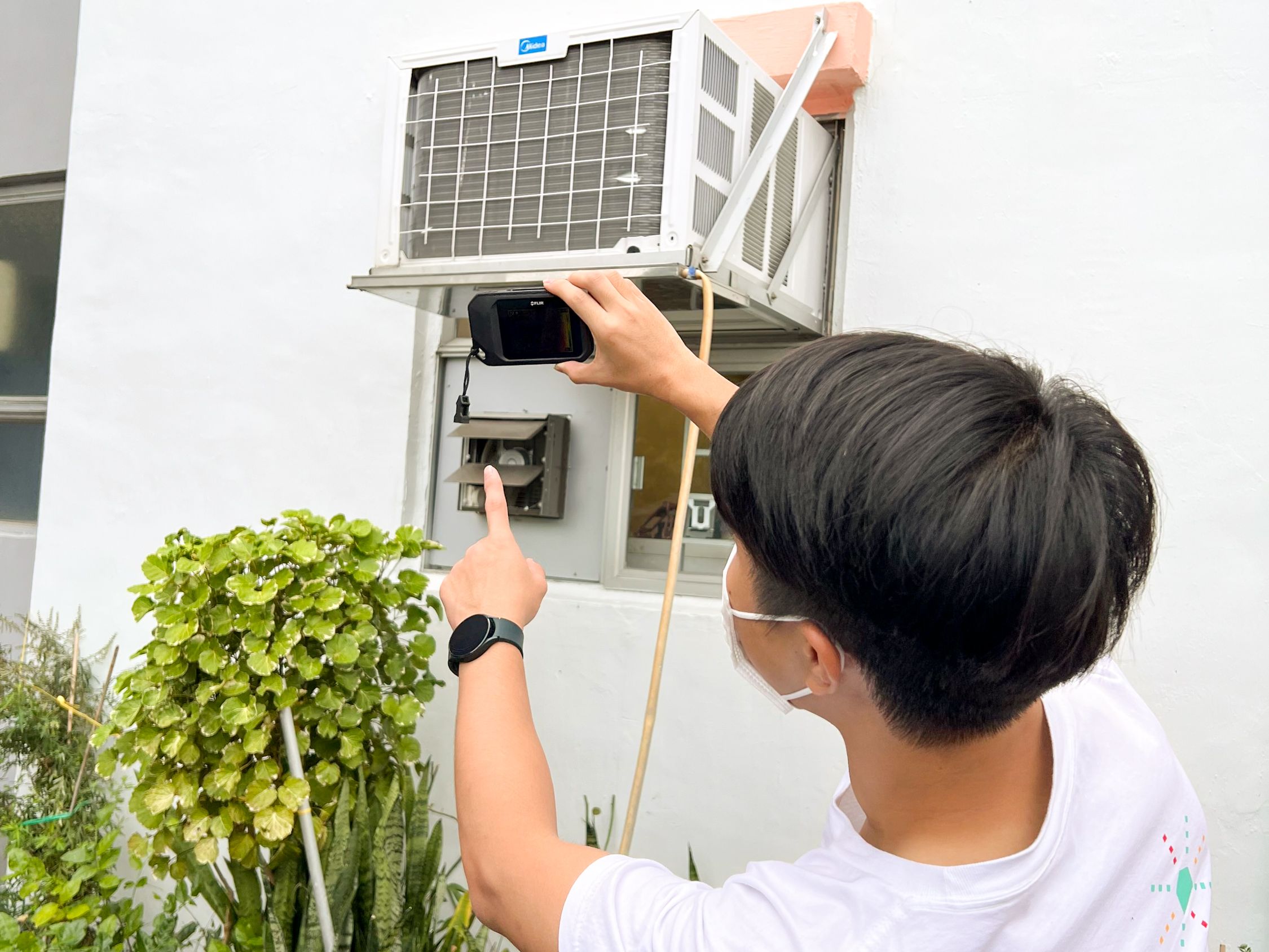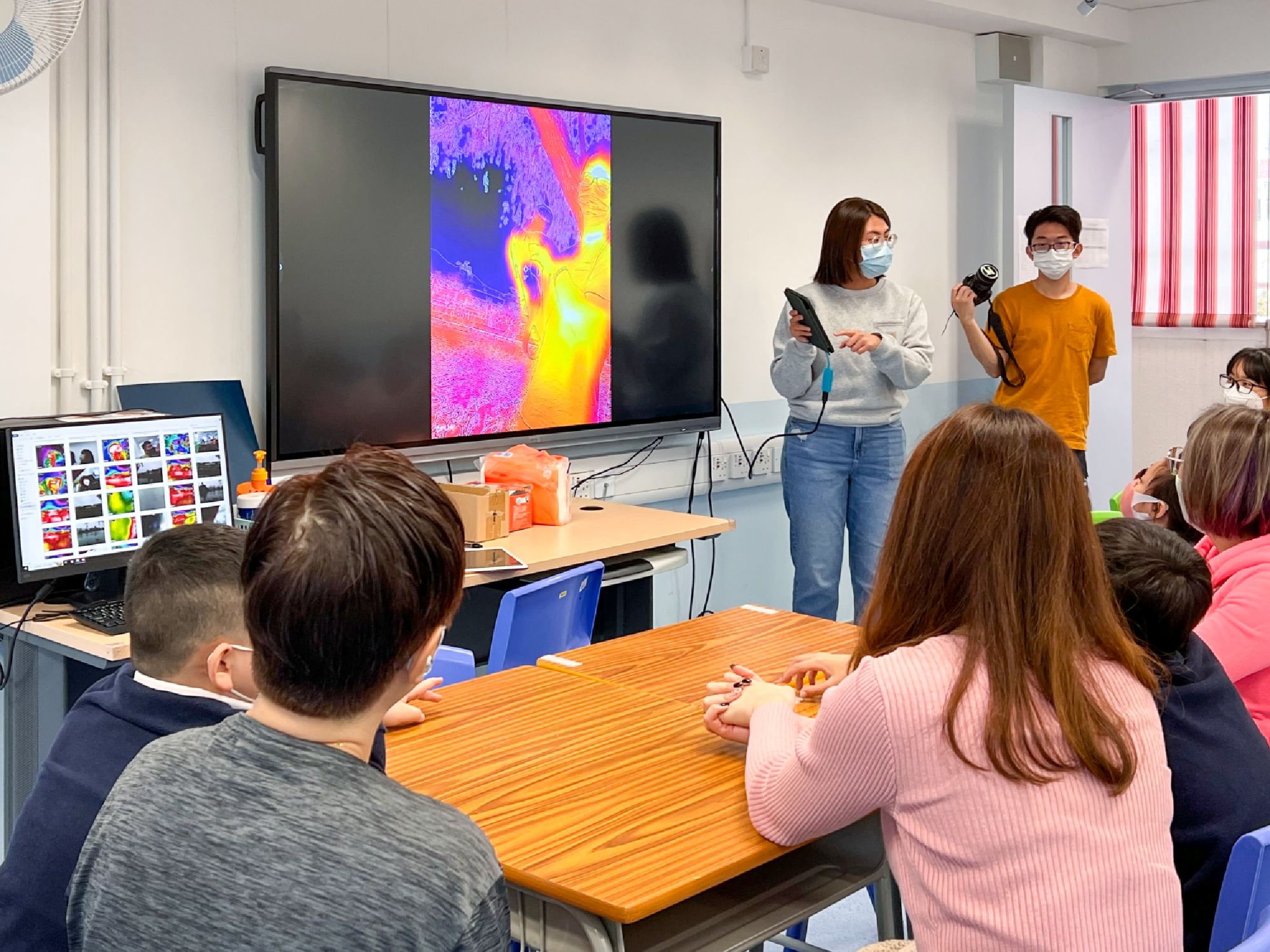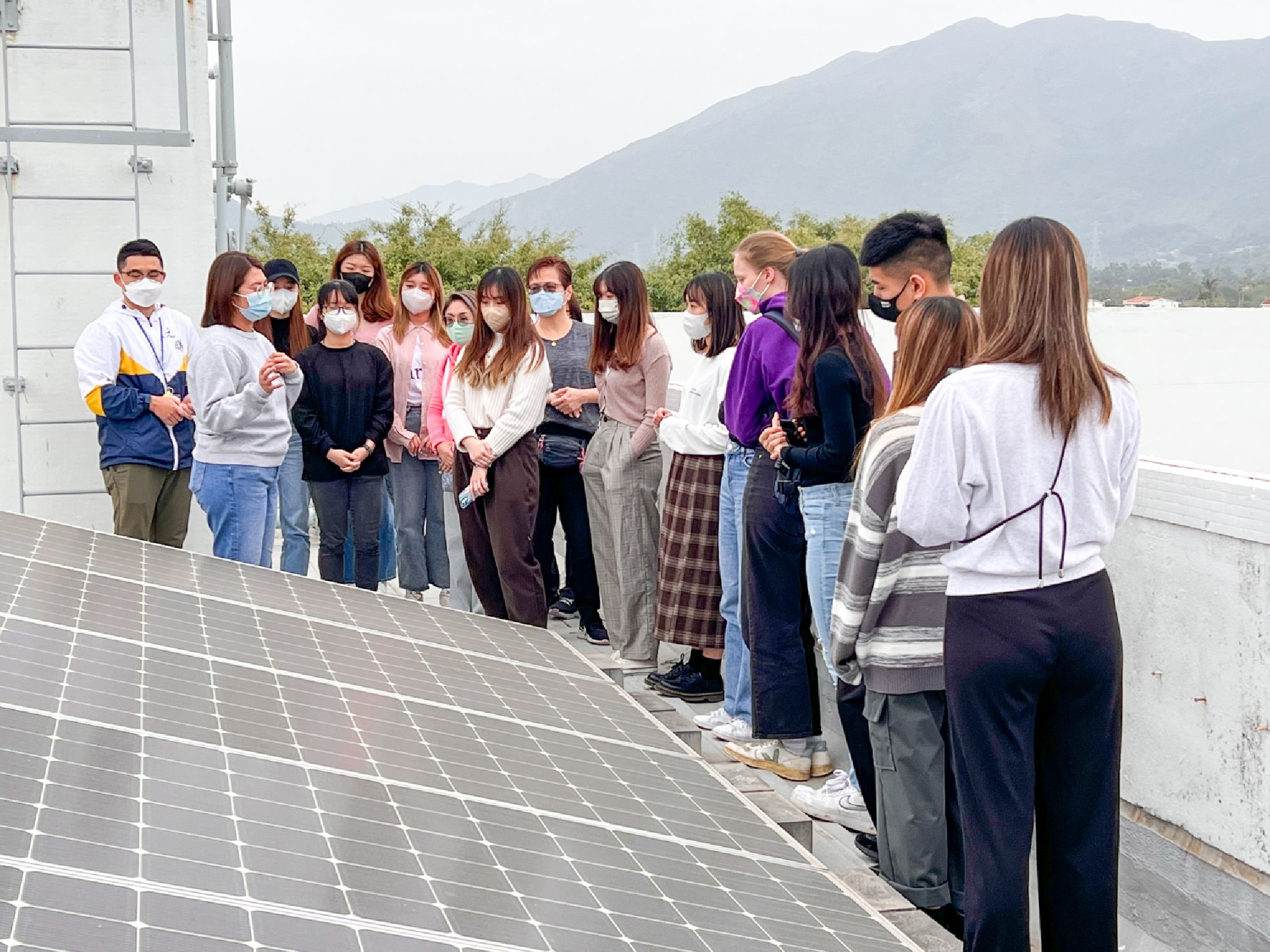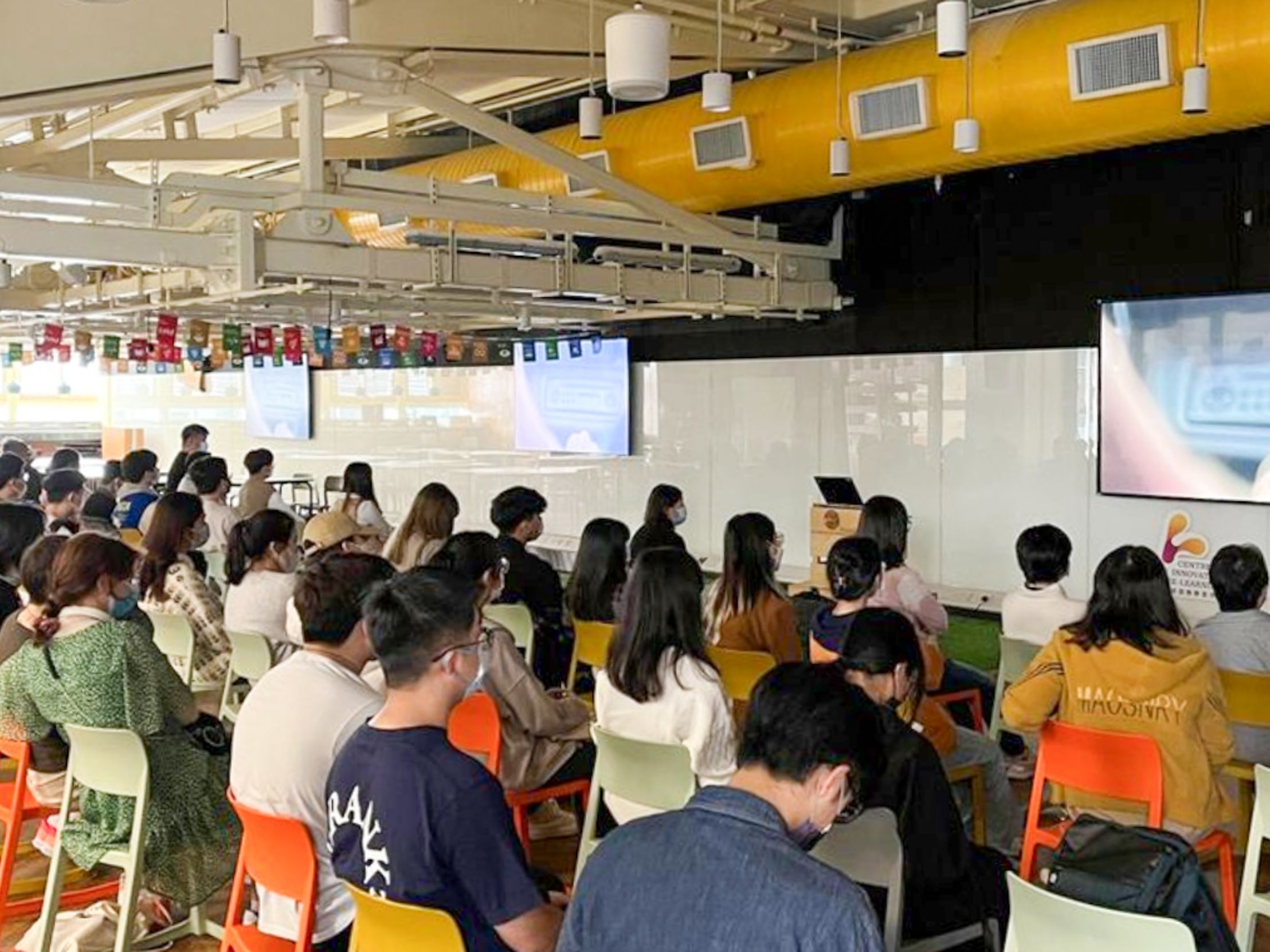SDG 13: Climate Action
Enhancing service-learning in energy education
Dr Daphne Mah, Director of Asian Energy Studies Centre, created service-learning opportunities for students in the “Energy Problems and the Environment” course. Students showed special education students at Hong Chi Morninglight School in Yuen Long how to utilise drone cameras to capture videos of solar rooftops. Additionally, students had the option to participate in a research trip to Seoul during the winter break to study sustainable energy regulations. The trip facilitated an intercultural exchange of information on energy research.
Learning about energy policy and analysis
In Dr Daphne Mah’s service-learning course “Energy Policy and Analysis”, students were assigned various tasks to enhance energy awareness. These tasks included conducting research, developing an online solar map, and organising solar seminars. As part of a virtual inter-city deliberative discussion workshop, students collaborated with four other Asian institutions to generate innovative ideas on engaging citizens in their respective cities’ carbon-neutral initiatives.
Tackling environmental issues with creativity
The General Education Office hosted the annual “CONNECT US – University Students and the Society” GE Student Assignment Competition. This competition showcased the exceptional works by students, focusing on a range of environmental issues that directly impact our daily lives. As part of the event, students presented their insights, reflections, and innovative solutions to address the pressing issue of global warming.


Reducing electronic waste for a sustainable future
The Centre for Innovative Service-Learning’s TriAngle, in collaboration with CNEX Foundation Hong Kong, organised an impactful environmental documentary screening and sharing session. The focus of the session was on the electronic waste crisis in Ghana, Africa. The documentary, titled Blame Game, sheds light on the global crisis of electronic waste disposal and highlights the dire living conditions and toxic air pollution faced by the people of Agbogbloshie. A group of 38 HKBU students attended the screening, deepening their understanding of the environmental challenges in Africa. Following the screening session, Ctrl Z from the Caritas Computer Workshop shared their efforts in recycling unwanted computers, repairing broken ones, and distributing them to underprivileged individuals. This initiative not only enhances technological literacy in society but also contributes to reducing electronic waste. The event left all participants feeling inspired and prompted them to reflect on their own roles in combating electronic waste.


Placing methane monitoring sites in China to better assist carbon management
Department of Geography
Authors: Meng GAO, Xiaorui ZHANG*, Chenhong ZHOU*, Yuzhong ZHANG*, Xiao LU*, Xiang XIAO*, Fan WANG*, Jun SONG,* Yike GUO*, Kenneth K. M. LEUNG*, Junji CAO*
*Corresponding author
Methane (CH4) is a potent greenhouse gas, and China has the largest anthropogenic emissions. However, current CH4 monitoring in China is insufficient for carbon management. Led by Dr Gao Meng, this study used the Weather Research and Forecasting model coupled with a greenhouse gas module and satellite-constrained emissions to simulate the spatiotemporal distribution of CH4 over East Asia in 2017. Model evaluations using both satellite retrievals and ground observations showed reliable performance. Four proper orthogonal decomposition-based sensor placement algorithms were compared and found to capture key spatial features of surface CH4 under an oversampled condition. The QR pivot algorithm exhibits superiority in capturing high CH4, and it offers the best reconstruction with both high efficiency and accuracy. The research findings provide valuable insights for methane monitoring site planning.
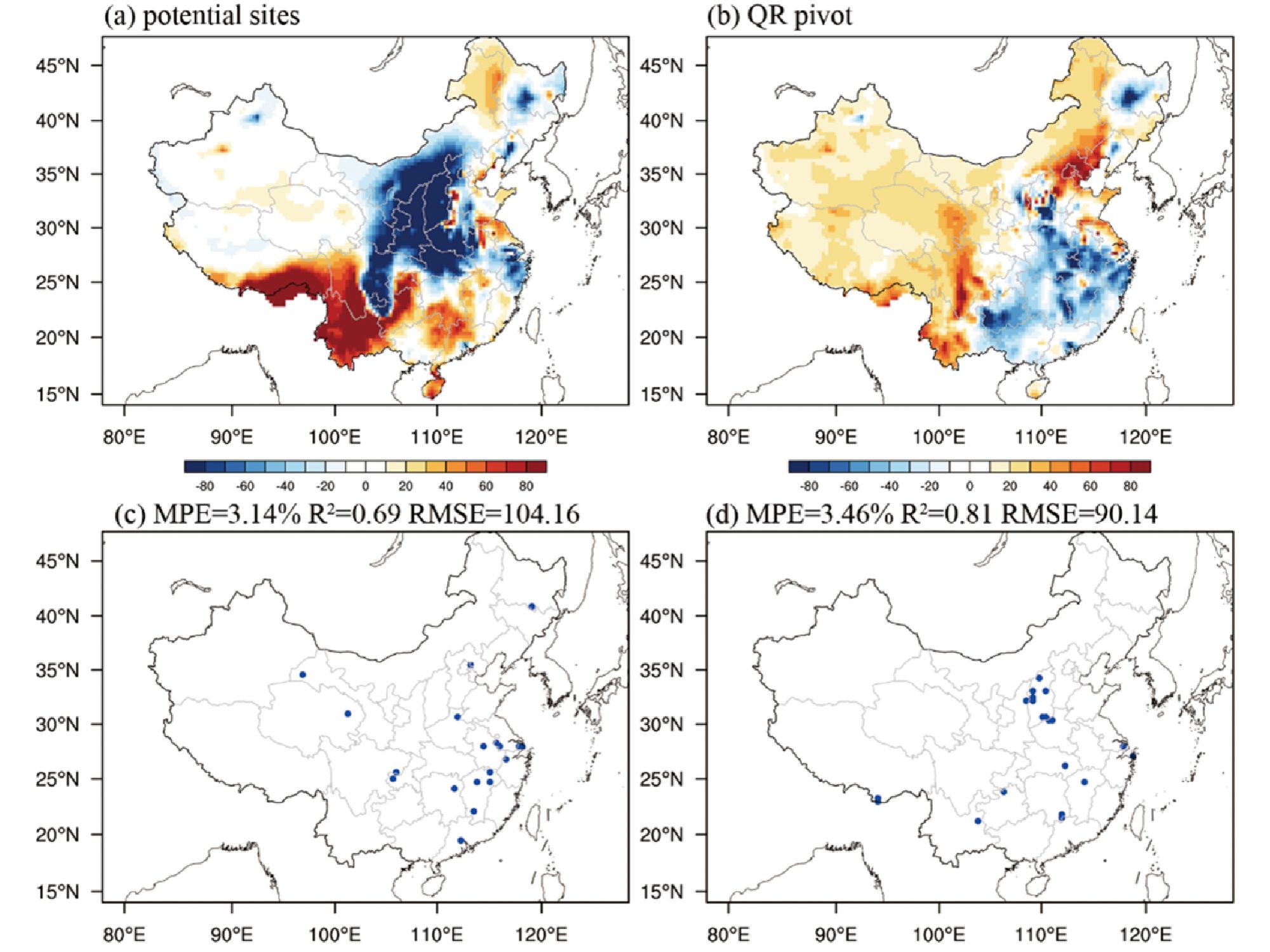

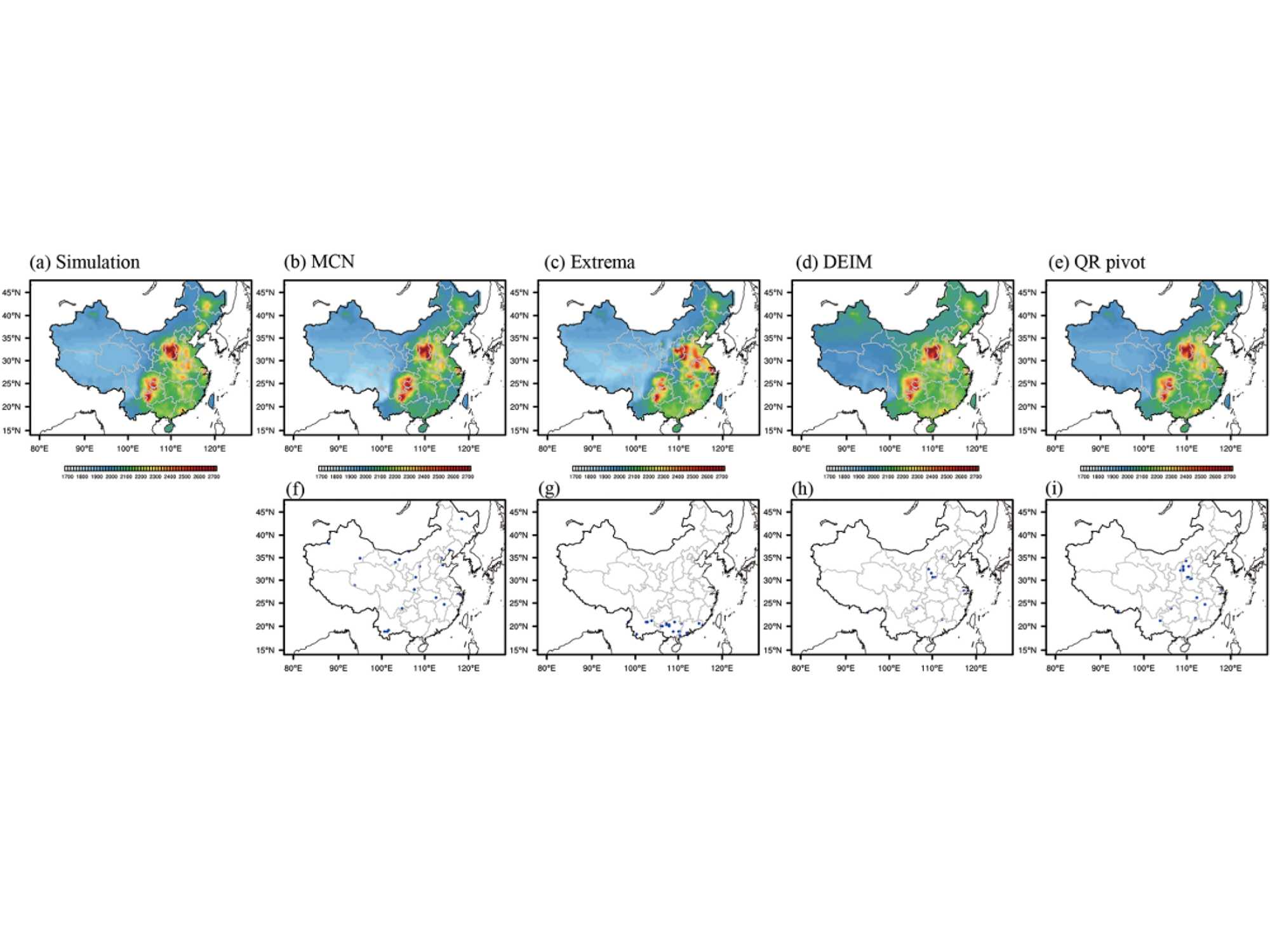

Characterising drought risk to facilitate climate action
Department of Geography
Author: Sajjad MUHAMMAD
While droughts cause significant socio-economic impacts, existing literature tends to focus on understanding them as a hazard, and few address other important factors like vulnerability and resilience. This study address this gap by conducting a drought risk assessment in Pakistan and analysing its implications for sustainable development, particularly in relation to SDG 13 “Climate Action”. In a multi-dimensional approach that integrated drought hazard, vulnerability, and resilience, the study developed a high-resolution national Drought Risk Index for Pakistan. Geoinformation tools were employed to identify spatial patterns and hot/ cold spots of drought risk.
The findings revealed an increasing north-south geographical risk disparity, with a growing proportion of hot spots in recent years, indicating a worsening drought situation. The frameworks proposed in the study can be adopted by other countries, especially those expected to face increased droughts due to climate change, for effective achievement of SDG 13 goals and progress towards a more sustainable future.
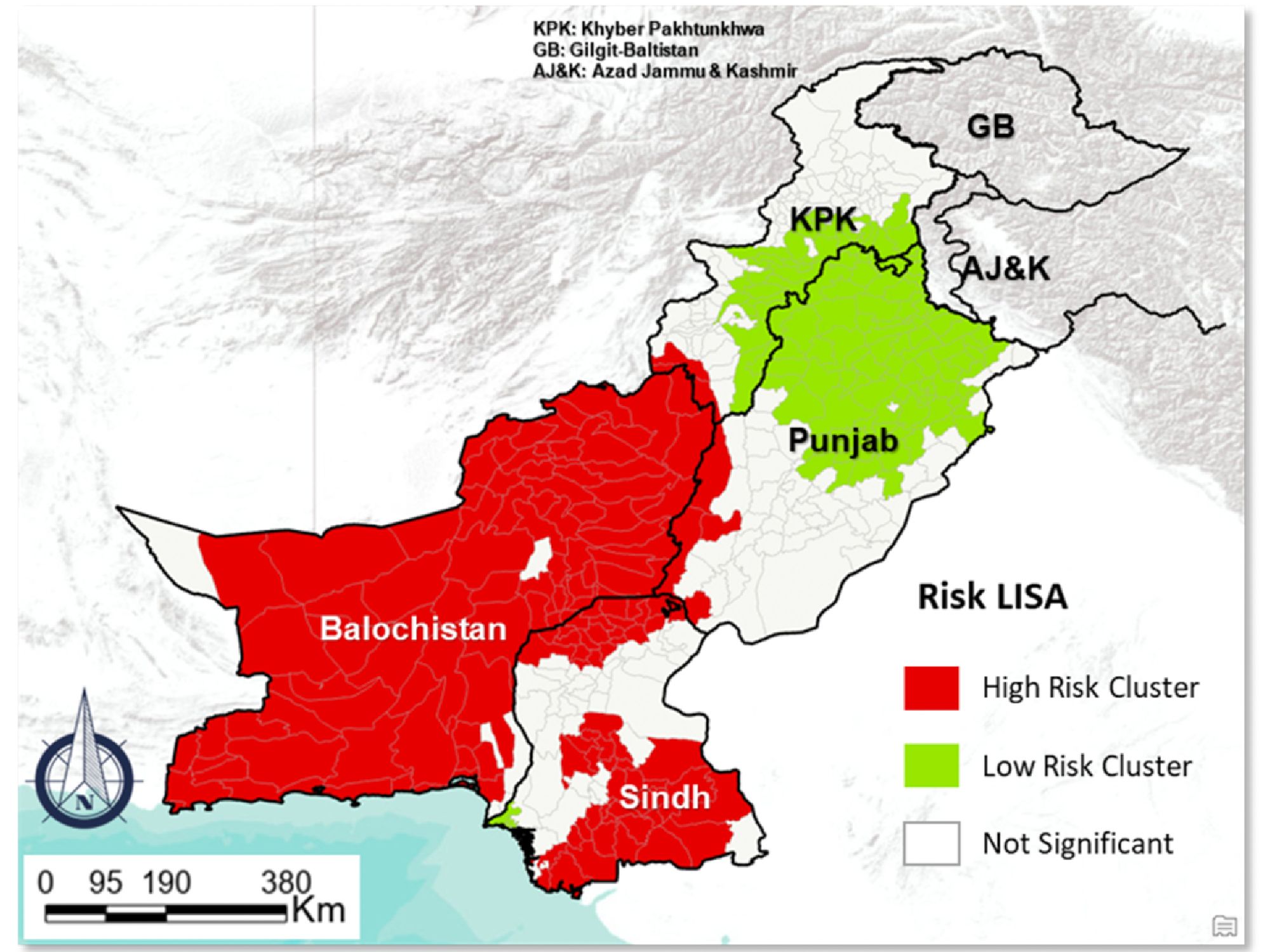

Pursuing climate solutions amid competition among nation-states
Department of Humanities and Creative Writing
Author: LO Kwai Cheung
The essay “Nation-States’ Rivalry and Climate Change” was an invited contribution to the “Performing Against the Catastrophe” Forum organised by the academic journal The Drama Review for the Stanford University Consortium Issue. In the essay, Professor Lo discusses how planetary-scale climate change solutions must be enforced through nation-states, yet the current world system drives severe competition among nation-states to pursue environmentally destructive development. The essay explores how China and the United States can cooperate on climate issues, as the two countries are the top two carbon emitters in the world. This short essay is part of Professor Lo’s larger research examining ecological civilisation in the Anthropocene era.
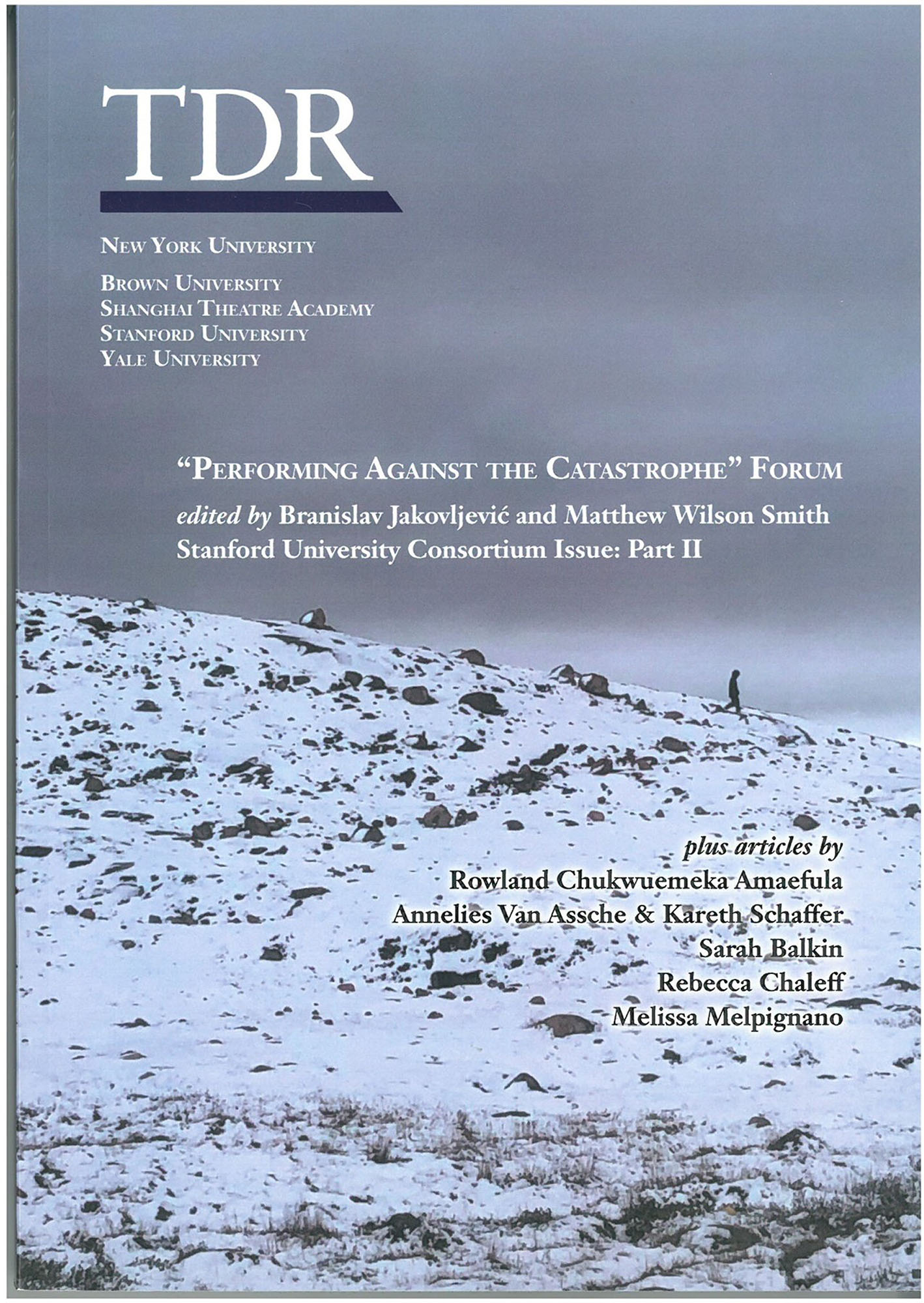

Carbon neutrality commitment
HKBU is committed to achieving carbon neutrality and has implemented various policies and strategies to support this goal. The University has established a range of policies and guidelines, including the Sustainability Policy, University Green Policy for Capital Projects and Major Addition and Alteration Projects for University Campus, Sustainable Procurement Policy, Sustainable Food Policy and Waste Management Policy. These policies serve as a framework for sustainable development and operations.
In 2019, HKBU developed a five-year energy management plan that outlines specific actions to reduce greenhouse gas (GHG) emissions. The effectiveness of these actions is reviewed annually to ensure progress towards the reduction targets. In 2023, HKBU prepared a Carbon Neutrality Strategy Plan, which sets medium-term and long-term targets for achieving carbon neutrality in alignment with Hong Kong’s carbon neutrality roadmap. The targets are as follows:
Medium-term target: Reduce Scope 1 & 2 GHG emissions by 50% by 2035/36
Long-term target: Achieve carbon neutrality for Scope 1 & 2 GHG emissions by 2044
HKBU has further developed decarbonisation strategies in four key areas:
- Energy saving & green buildings: This includes energy-saving projects, maintaining energy-efficient operations, developing on-site renewable energy, and pursuing green building certifications for new developments and major renovations.
- Green transport: The University aims to install EV chargers at new carparks, upgrade and increase the number of EV chargers at existing carparks and replace all traditional gasoline-powered vehicles with EVs.
- Waste reduction: The University is implementing sustainable procurement and green catering practices, reward-based incentive programmes, and expanding recycling facilities to increase waste reduction and recycling rates.
- HKBU engagement: To raise awareness and encourage responsible consumption, the University organises staff and student engagement activities, events, educational programmes, and installs energy performance dashboards at public areas.
Furthermore, the University has established the Carbon Neutrality Policy, which is publicly available on its thematic sustainability website (https://hkbu-sustainability.hkbu.edu.hk/carbon-neutrality.html). This policy guides the University’s operations and development as it progresses towards its decarbonisation roadmap.
